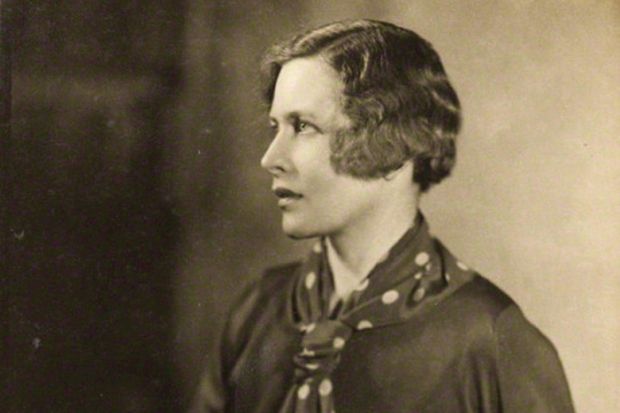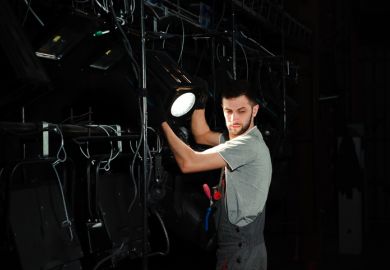We hear about all those telephone number salaries that the BBC’s big cheeses are earning. I wonder, though, whether they have a matron and an in-house flower arranger these days. And I bet that whoever meets arriving celebrities isn’t dolled up in evening dress.
Former BBC staffer Kate Murphy, now lecturing at Bournemouth University, has produced a real treasure trove of a book, replete with tasty morsels of research and pen portraits of the national broadcaster’s formidable female pioneers and game gals.
Early on, she observes that most of what we know from the early days of the BBC comes from all-male memoirs. And in fact, it was a throwaway comment in Asa Briggs’ multi-volume History of Broadcasting in the United Kingdom that set Murphy on her journey. What she is aiming for is prosopography – collective biographies. A lot of staff files no longer survive. So when it comes to people like the wonderfully named Elise Sprott, Murphy has ranged across documents from the BBC’s Written Archives Centre: memos, monthly reports, meetings minutes, the records of the BBC Club and its staff magazine, Ariel.
With this in mind, Murphy acknowledges that she is not undertaking a full history of women at the early BBC. What she aims to do instead is to capture the buzz around the 1920s and 1930s Beeb. The First World War and the repeal of the Sex Disqualification Act (Removal) in 1919 allowed female entry to most professions, and the BBC was seen as a highly desirable place to work.
She paints a vivid picture of beautifully turned-out young women flocking through the doors of the BBC every morning. Maurice Gorham, editor of the Radio Times from 1926, preferred to liaise with the secretary rather than the relevant producer: “They were clever…did the work of two men…not only was it more pleasant, but she would probably know more too.”
Murphy frequently touches on the ambivalent attitude to female staff of the corporation’s first director general, John (later Lord) Reith. She also discusses the fact that its Marriage Bar turned out to be a partial one, and with some ways around it for prized female staff. In certain quarters, no elegant eyebrows were raised at same-sex relationships. Hilda Matheson (pictured, above), its Director of Talks and one of the BBC’s elite women, had an affair with the writer Vita Sackville-West. Apparently, Matheson’s secretary, Eileen Barry, beamed when her suspicions of a stay at Sissinghurst for her boss were confirmed – and blushed when the poet sent her lupins. Matheson, we learn, enjoyed being different – although her contrariness would lead to her departure from the corporation. Murphy’s poring over the archives is meticulous, but it is the personal stories that make this book so engrossing and so valuable.
And as for Sprott, one of four women to have responsibility for the BBC’s talks aimed at women in the interwar years, we learn that she changed her first name from Elsie – presumably because the new moniker sounded better on air – and was appointed an MBE for services to broadcasting. Murphy even discovered a 25-second clip of her voice from 1932, which she describes as gold dust.
The book ends on a personal note, with Murphy mentioning her 24 years at the BBC working on Woman’s Hour. She notes that the number of women in senior management positions remains stubbornly at about 38 per cent and that women continue to be poorly represented at executive level. And her mention of the case of presenter Miriam O’Reilly – who successfully sued the BBC for age discrimination in 2011 – reminds us that there are still battles to be fought and won.
Sharon Wheeler is visiting lecturer in media studies, Birmingham City University, and author of Feature Writing for Journalists (2009).
Behind the Wireless: A History of Early Women at the BBC
By Kate Murphy
Palgrave Macmillan, 295pp, £19.99
ISBN 9781137491725
Published 9 May 2016
Register to continue
Why register?
- Registration is free and only takes a moment
- Once registered, you can read 3 articles a month
- Sign up for our newsletter
Subscribe
Or subscribe for unlimited access to:
- Unlimited access to news, views, insights & reviews
- Digital editions
- Digital access to THE’s university and college rankings analysis
Already registered or a current subscriber?




